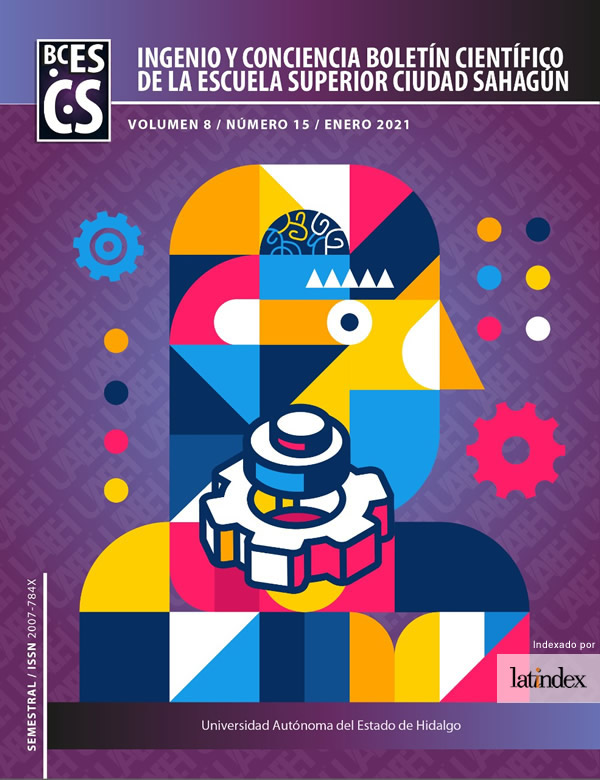Corporate social responsibility and its impact on the working life quality
Abstract
Due to the exponetial globalization growth the corporate social responsibility is becoming increasingly important as a result of the demands from some special interest groups. They demand the corporations to adapt their activities to sustainable models, hence the corporate must prioritize these demands in the corporate strategy program. This paper analyzes the social responsiblity indicators that impact on the working life quality. Through a survey of 66 questions to 186 employees in order to identify wich social responsibility strategies have the most impact on the employees working life quality, considering the surveyed corporate as a pattern. This paper pretends to demonstrate that the corporations not only have a positive impact on society but they also provide better wellfare to their employees. Thus a stronger identity and sense of belonging is born.
We may conclude the verification of the hypothesis which mentions that, by implementing the main corporate social responsibility strategies on the members of a corporation, it allows to improve the quality of working life and identity with the company in a successful way . Which will ultimately lead to the improvement of its competitiveness.
Downloads
References
Alvarado, A. y Schlesinger, M. (2008). Dimensionalidad de la responsabilidad social empresarial percibida y sus efectos sobre la imagen y la reputación: una
Barroso, F. (2008). La responsabilidad social empresarial un estudio de 40 empresas en la ciudad de Yucatán. Contaduría y Administración, No. 7391
Beneytez, B. (2007). Estado de implantación de la responsabilidad corporativa en la empresa española. Recuperado de: http://www.eoi.es/nw/multimedia/publicacioneseoi/2007_Libro_14.pdf
Castañer, M., Camerino, O. y Anguera, M. T. (2013). Métodos mixtos en la investigación de las ciencias de la actividad física y el deporte. Apuntes. Educación Física y Deporte, No. 112(2), p. 31-36.
CentraRSE. (2006) ¿Qué es RSE? Recuperado de: http:// siteresources.worldbank.org/CGCSRLP/Resources/Que_es_ RSE.pdf
Cestagalli, L., Téllez, H. y Cuevas, S. (2016) La responsabilidad social empresarial: una ventaja competitiva en empresas de cobranza y call center. Cuadernos de Ciencias Jurídicas y Política Internacional. Universidad de San Buenaventura, sede Bogotá Vol. 9. No. 2 p. 107-127.
Creswell, J. W. y Plano Clark, V. L. (2007). Designing and conducting Mixed Methods research. Thousand Oaks, CA: Sage. Doi: 10.1177/1558689807306132
De la Cuesta, M. y Valor, C. (2003). Responsabilidad social de la empresa Concepto, medición y desarrollo en España. Boletín económico de ICE, p. 14.
Galeano, M. y Eumelia, M. (2004). Diseño de Proyectos en la investigación cualitativa. Fondo Medellín, Colombia. Editorial Universidad EAFIT.
Godos-Díez, J. y Fernández, R. (2011). ¿Cómo se percibe la dirección socialmente responsable por parte de los altos directivos de empresas en España? Universia Business Review, p. 19.
Gómez, M. (2006). Introducción a la Metodología de la Investigación Científica. Córdoba, Argentina. Edit. Brujas.
Gonzáles de Pacheco, R. y Jaén, M. (2008). Responsabilidad social empresarial: ¿llegó para quedarse? Recuperado de: http://search.ebscohost.com/login.aspx?direct=true&db=zbh&=24106772&lang=es&sute=ehost-live
Hernández, R., Fernandez Collado, C. y Baptista, P. (2014). Metodología de la Investigación secta edición. Mc Graw Hill. ISBN: 978-1-4562-2396-0. México
Kerlinger, F. (1983). Investigación del Comportamiento. Técnicas y Metodología, 2ª. ed. Ed. Interamericana, México. (Obra original publicada en 1973)
Mababu, R. (2010). Actitudes de los Empresarios y Directivos hacia la Responsabilidad Social Corporativa. Revista de Psicología del Trabajo y de las Organizaciones, p. 26.
Martínez, A. (2015). Las cooperativas y su acción sobre la sociedad. REVESCO. Revista de estudios Cooperativos. Vol. 117. Doi: https://doi.org/10.5209/rev_REVE.2015.v117.48144
Morse, J. M. (1991). Approaches to qualitative-quantitative methodological triangulation. Nursing Research, No. 40(2), p.120-123.
Nisha, P. (2012). The Impact of CSR Perception on Job Attitudes of Employees in India. Advances in Management, No.5, p.58-61.
Rego, A., Leal, S. y Pina, M. (2011). Rethinking the Employees’ Perceptions of Corporate Citizenship Dimensionalization. Journal of Business Ethics, p. 207–218
Riba, C. E. (2007). La metodología qualitativa en l’estudi del comportament. Barcelona: UOC.
Rupp, D., Ganapathi, J., Aguilera, R., y Williams, C. (2006). Employee reactions to corporate social responsibility: an organizational justice framework. Journal of Organizational Behaviour, p. 8. doi: 10.1002/job.380
Shauki, E. (2011). Perceptions on Corporate Social Responsibility: A Study in Capturing Public Confidence. Corporate Social Responsibility and Environmental Management. No. 18, p. 200–208.
Tashakkori, A. y Teddlie, C. (2008). Introduction to mixed method and mixed model studies in the social and behavioral sciences. In V. L. Plano y J. W. Creswell (Eds.), the mixed methods reader, p. 7-26. Thousand Oaks, CA, EE. UGU.: SAGE
Túnez, J. y Valarezo, K. (2012). RSC: Reputación, sostenibilidad, compromiso. Revista Latinoamericana de comunicación, Chasqui, No. 117, p. 61-66.
Turker, D. (2008). How Corporate Social Responsibility Influences Organizational Commitment Duygu Turker. Journal of Business Ethics, No. 89, p. 189–204.
Tziner, A., Bar, Y., Oren, L., y Kanosh, G. (2011). Corporate Social Responsibility, Organizational Justice and Job Satisfaction: How do They Interrelate, if at All? Revista de Psicología del Trabajo y de las Organizaciones, 27, p. 67-72.
Walton, R. (1973). Conciliación de conflictos interpersonales. México: Fondo Educativo Interamericano.










